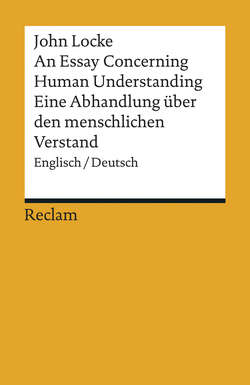Читать книгу An Essay Concerning Human Understanding / Ein Versuch über den menschlichen Verstand. Auswahlausgabe - John Locke - Страница 26
На сайте Литреса книга снята с продажи.
[216]CHAPTER XVI
ОглавлениеOf Number
§ 1. AMONGST all the Ideas we have, as there is none suggested to the Mind by more ways, so there is none more simple, than that of Unity, or One: it has no shadow of Variety or Composition in it: every Object our Senses are employed about; every Idea in our Understandings; every Thought of our Minds brings this Idea along with it. And therefore it is the most intimate to our Thoughts, as well as it is, in its Agreement to all other things, the most universal Idea we have. For Number applies it self to Men, Angels, Actions, Thoughts, every thing that either doth exist, or can be imagined.
§ 2. By repeating this Idea in our Minds, and adding the Repetitions together, we come by the complex Ideas of the Modes of it. Thus by adding one to one, we have the complex Idea of a Couple; by putting twelve Unites together, we have the complex Idea of a dozen; and so of a Score, or a Million, or any other Number.
§ 3. The simple modes of Number are of all other the most distinct; every the least Variation, which is an unite, making each Combination, as clearly different from that, which approacheth nearest to it, as the most remote; two being as distinct from one, as Two hundred; and the Idea of Two, as distinct from the Idea of Three, as the Magnitude of the whole Earth, is from that of a Mite. This is not so in other simple Modes, in which it is not so easie, nor, perhaps, possible for us to distinguish betwixt two approaching Ideas, which yet are [218]really different. For who will undertake to find a difference between the white of this Paper, and that of the next degree to it: Or can form distinct Ideas of every the least excess in Extension?
[…]
§8. This farther is observable in Number, That it is that, which the Mind makes use of in measuring all things, that by us are measurable, which principally are Expansion and Duration; and our Idea of Infinity, even when applied to those, seems to be nothing, but the Infinity of Number. For what else are our Ideas of Eternity and Immensity, but the repeated additions of certain Ideas of imagined parts of Duration, and Expansion with the Infinity of Number, in which we can come to no end of Addition? […] And this endless addition or addibility (if any one like the word better) of Numbers, so apparent to the Mind, is that, I think, which gives us the clearest and most distinct Idea of Infinity: of which more in the following Chapter.
